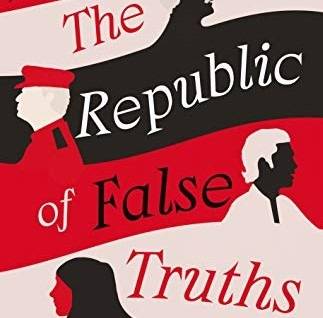The writer Xinran first came to the attention of readers in the West with her acclaimed 2002 book The Good Women of China, a collection of life stories of women living under China's Communist regime. Born in 1958, she began working as a broadcast journalist in the early 1980s and became an icon for Chinese women through her nightly radio phonein programme, Words on the Night Breeze, which dealt with women's issues. Despite political restrictions she found that women felt able to unburden themselves to her, relating experiences of rape, torture and the separation of children from their parents. In 1997, overwhelmed by the pressure of being a voice for Chinese women, she left China for England.
Xinran met Shu Wen in 1994: "An old woman dressed in Tibetan clothing, smelling strongly of old leather, rancid milk and animal dung. Her grey hair hung in two untidy plaits, and her skin was lined and weatherbeaten. Yet...her accent immediately confirmed to me that she was indeed Chinese."
Wen had travelled to Tibet in 1958 to look for her husband Kejun, a Chinese military surgeon who had gone missing in action, presumed dead. He and Wen, who had also trained as a doctor, supported the Chinese invasion of Tibet by the People's Liberation Army with fervent enthusiasm and were utterly committed to their roles in Mao Zedong's reconstruction of China. After the devastating civil war between the Nationalists and the Communists they were buoyed up by full employment, free schools and hospitals, and the belief that China would reach economic parity with Britain and the USA within twenty years. "Everything was changing in China. Many people were packing their bags and heading for poor rural areas to carry out land reform. We regarded separation from our loved ones as a chance to demonstrate our love for the Motherland."
Xinran is struck by the passion with which Wen talks about her love for Kejun, explaining that in Chinese society it was traditional to suppress emotions and hide one's thoughts. "I had not imagined that the young people of my mother's generation could love each other so passionately." Despite the bloody fighting between Chinese troops and Tibetans, the treacherous landscape and the enervating altitude sickness that foreigners were vulnerable to, Wen refused to be discouraged from entering Tibet. She stayed there for over thirty years, spending much of this time with a displaced Tibetan noblewoman, Zhuoma, and a family of nomadic farmers.
Xinran describes evocatively how a rich and complex culture is drawn from an apparently harsh and unyielding environment. While Shu Wen's story is extraordinary and deeply moving, her account of day to day life in Tibet is equally fascinating. She slowly learned the Tibetan language, and gained the physical strength and stamina needed for the intensely hard work of milking, churning butter, making dung cakes, fetching water. Never forgetting her quest to find Kejun, she learnt to accept a life unimaginably different from what she had envisaged for herself.
Through her relationship with Zhuoma, who was also searching for a lost partner, Wen realised that China was attempting to 'liberate' Tibet without any knowledge or understanding of its culture. She was forced to expand her view of humanity and confront, intellectually and emotionally, the act of cultural arrogance she had taken part in.
Although Wen never fully embraced the Buddhist religion central to the family's life, the Buddhist acceptance of fate and sense of being inextricably linked with nature gave value and meaning to what might have been a life of terrible loss and loneliness. The sky burial of the title, a Tibetan funeral ceremony where the dismembered bodies of the dead are ritually fed to sacred vultures, assumes monumental significance as the book reaches its shocking and moving conclusion.
This is a remarkable story, written clearly and directly. The stark, unembellished style reflects perfectly the silence and sense of infinite time and space. Though the characters are real people, the scale of their endurance and their unrelenting loyalties give the book an epic, mythical quality. Shu Wen is a heroine at once burning with passion yet utterly dignified and selfcontained. Her impact on Xinran is beyond question. She describes Shu Wen as "one of the most exceptional women I would ever know".
It is unclear under what circumstances the two women parted, but the book ends with an appeal by Xinran: "I have spent many years searching for you, hoping that we might sit together in the teascented Yangtze delta so that you can tell me the story of your life after Sky Burial."

